- Home
- Mark Zubro
Another Dead Republican
Another Dead Republican Read online
Table of Contents
ANOTHER DEAD REPUBLICAN
blurb
copyright
dedication
One
Two
Three
Four
Five
Six
Seven
Eight
Nine
Ten
Eleven
Twelve
Thirteen
Fourteen
Fifteen
Sixteen
Seventeen
Eighteen
Nineteen
Twenty
Twenty-one
Twenty-two
Twenty-three
Twenty-four
Twenty-five
Twenty-six
Twenty-seven
Twenty-eight
Twenty-nine
Thirty
Thirty-one
Thirty-two
Thirty-three
Thirty-four
Thirty-five
Thirty-six
Thirty-seven
Thirty-eight
Thirty-nine
Forty
Forty-one
Forty-two
Forty-three
Forty-four
Forty-five
Forty-six
Forty-seven
Forty-eight
Forty-nine
Fifty
Fifty-one
Fifty-two
Fifty-three
Fifty-four
Fifty-five
Fifty-six
Fifty-seven
Fifty-eight
Fifty-nine
Epilogue
About the Author
MLR PRESS AUTHORS
GLBT RESOURCES
ANOTHER DEAD REPUBLICAN
MARK ZUBRO
mlrpress
www.mlrpress.com
Another Dead Republican is a mystery of familial destruction set in a world of violent intrigue and deadly ambition. A ringing phone in the middle of the night set Tom Mason and his lover, baseball player, Scott Carpenter on the trail of a vicious killer in a suburban enclave. Tom’s brother-in-law has been murdered. Tom rushes to be with his beloved sister. The dead man was the son of the vicious Republican county that runs a county. The ruling cabal will stop at nothing to destroy people and lives that get in their way of accumulating more useless wealth.
This book is a work of fiction. Names, characters, places, and incidents either are products of the author’s imagination or are used fictitiously. Any resemblance to actual events or locales or persons, living or dead, is entirely coincidental.
Copyright 2012 by Mark Zubro
All rights reserved, including the right of reproduction in whole or in part in any form.
Published by
MLR Press, LLC
3052 Gaines Waterport Rd.
Albion, NY 14411
Visit ManLoveRomance Press, LLC on the Internet:
www.mlrpress.com
Cover Art by Deana C. Jamroz
Editing by Neil S. Plakcy
Print format: ISBN# 978-1-60820-731-2
ebook format: ISBN# 978-1-60820-732-9
Issued 2012
This book is licensed to the original purchaser only. Duplication or distribution via any means is illegal and a violation of International Copyright Law, subject to criminal prosecution and upon conviction, fines and/or imprisonment. This eBook cannot be legally loaned or given to others. No part of this eBook can be shared or reproduced without the express permission of the publisher.
For their kind help and assistance I wish to thank: Jeanne Dams, Barb D’Amato, R.J. Jackson, Scott Jorgenson, and Neil Plakcy
ONE
Wednesday 2:37 A.M.
The phone rang. The digital clock read two thirty-seven in the morning. Heart hammering, I grabbed for the receiver. Some family tragedy, mine or Scott’s, awful news, that’s the only kind of call one gets at that hour of the morning, or a wrong number.
I said, “Hello?”
Between sobs my sister Veronica’s frantic voice screeched at me. I couldn’t understand her. She was so loud, I was forced to hold the phone away from my ear.
Scott lifted himself on one elbow and looked at me.
Veronica gasped for breath.
I said, “Veronica?”
She said, “Edgar is dead.”
Edgar was her husband.
I sat up and swung my legs over the side of the bed.
She sobbed. I let her. What else was there to do?
Veronica and I were close. We talked frequently, and of all of us kids, she was the one closest to mom. She and Edgar had three kids; six, ten, and thirteen years old.
Her crying eased, and she gulped several breaths. She spoke between heaving gasps. “Tom. He. Was. Murdered.” She wept some more.
“What is it?” Scott murmured.
I put my hand over the receiver. “Veronica. She says Edgar has been murdered.”
Scott edged over to me and rested on his elbow, his other arm around me, his chin nuzzling my shoulder, and his breath on my neck.
I hated Edgar.
TWO
Wednesday 2:39 A.M.
The first and only time my brother-in-law, Edgar, used the n-word in my presence was at the dinner table Christmas fifteen years ago. At the time he was Veronica’s boy friend. It was my home, my turn to host the holiday dinner. The whole family had gathered as was traditional. It was Edgar’s first time at a family event.
When he dropped the n-bomb, all conversation ceased. A dreadful silence fell, the kind that falls after the ignorant perpetrate an offense on the decent.
While the silence built, Edgar glared at everyone. Finally, he said, “I have a First Amendment right to say what I want.”
I said, “No one has suggested that we get Congress to pass a law forbidding you to make a despicably ignorant statement at my dinner table in my home.”
“See,” he said.
I said, “What I am saying is that I find the use of that word offensive. I am saying that I will not have it at my dinner table. I will not have it in my home. You can exercise what you misunderstand to be a First Amendment right, but not in my home.”
“The First Amendment says,” he began.
I cut him off. “I know precisely what the First Amendment says.” I quoted it to him verbatim. “You don’t get to redefine what it means. You don’t get to use it as an excuse to trumpet bigotry and prejudice, not in my home. Don’t do it again.”
I used my nastiest teacher glare on him. For years, it had stopped hordes of rampaging teenagers at Grover Cleveland High School where I taught. If looks could maim, he’d have left on a hospital gurney.
My sister said, “Now, Tom.”
I gave her the same icy look and said, “This is my home. Other people can have whatever rules they want in their homes.” I couldn’t believe she would even remotely begin the slightest attempt to defend him. We’d discussed prejudice in my family often, frowned upon it, and condemned it long before I came out as gay and added another dimension to the dynamic of tolerance.
However, I had just violated one of the cardinal rules in my mom’s family tradition. My mom always taught that the guest was king in our home.
Mom’s holiday rules were weird like that. For example, start with the candy dish or nuts or hors d’oeuvres set out on an end table for guests on a holiday. My mother’s rule was that in our home, we, the kids, were never to eat those treats because they were for the guests, but if we were the guests in someone else’s home, we were still not to eat them because they were there for decoration or not to be eaten because it would ruin our dinner. Home or away, we never got the goodies.<
br />
Same with conversation: the rule was to swallow your feelings, your sensibilities, and your manners if the guest was in your home. The major goal was to have the guest be comfortable. Or if you were a guest in someone else’s home, you were to remain silent because it was their home, and we were to follow their rules.
No possible way for us to eat or enjoy the good stuff or say what we thought or felt.
Yeah, well, I love my mom, but as far as I could see, her holiday rules were full of shit. The candy or nuts or hors d’oeuvres would never be eaten by anyone.
The rules of politeness extend both ways. In my home, there were limits, and Edgar had reached his.
The first time I met him, I’d taken an instant dislike to him. The first sentence he spoke included a racist comment.
Edgar and his family were involved in Republican party politics up to their well-filled martini glasses.
At that holiday dinner, after glaring Veronica to silence, I turned my steely gaze back to her eventual husband. He finally lowered his eyes and mumbled, “Okay.”
My mother jumped in and began a conversation with my oldest brother, Lionel, about one of his son’s hockey games and talk drifted off.
Edgar was just such a shit. My brother-in-law never let up in a real way.
Over the years our actual attendance at events in Edgar’s home were rare. Contact with him was severely limited. Most often, visits with my sister happened when Edgar was at work.
Years later, after I’d met Scott, and he was attending all family functions, he and Edgar finally encountered each other. On first meeting, Edgar made the most obnoxious baseball fan appear to be a drowsy puppy. Edgar brought up games that Scott had lost, pitches batters hit for home runs off him, costly walks. Edgar ranted about what could have been done, should have been done, and how it could have been done. He was worse than a drunk at a ballpark sitting behind you bellowing with his beer breath. At least at a game, they’d paid to get in, and you could move, or tell an usher, or be obnoxious for your own team.
Edgar prattled and fumed about baseball then moved on to an idiot rant and tirade. It started with Edgar’s view on how to throw curveballs to .250 hitters.
Even more odd, Edgar wasn’t a particular fan of Scott’s team, but that didn’t matter to Edgar, and I learned from Veronica that he’d been a portly child, and except for one stint on the freshman football team in high school, had never even tried out for a sport.
Doesn’t mean you have to play a game to be an expert, but to elevate an opinion to expertise, just because the opinion is uttered, is best left to the talk show morons on Fox.
At the dinner in question, Edgar waved his arms spasmodically in the air bringing himself to a dramatic finish and asked, “Do you realize what you did wrong?”
Scott is incredibly patient with fans, and he has a low boiling point. I’ve rarely seen him angry or lose control. I wanted to leap up and throttle Edgar.
Veronica’s face had gone white. She looked as wives have looked for millennia who are powerless to stop their husbands who don’t know when to shut up. My mom tried to change the subject. Edgar’s voice overrode her, demanding, “Don’t you agree with me?”
Look up calm in the dictionary, they have a picture of Scott, intense but calm.
Scott caught Edgar’s eyes and held them.
“Well,” Edgar demanded. “Why aren’t you saying something? Why aren’t you reacting?”
Everyone seemed to have stopped eating. Even my mother with her usual quick diversions sat with mouth agape.
Into this abyss of silence, Scott’s deep voice rumbled. “I am.” And the silence resumed, and he held Edgar’s glare, and my husband’s eyes didn’t waver.
Edgar broke first. To be fair, many a fearsome batter in the Majors had broken long before he did. Edgar looked down and said, “I was just sayin’.” He looked up for an instant into Scott’s eyes, immediately looked away. “It’s just my opinion.”
I said, “Precisely.”
Scott smiled at me. We gave each other a quick kiss.
Edgar did not puke at this, worse luck.
Recovered, Mom rushed in to talk about window treatments, blinds, and drapes in my younger brother, Darryl’s, new home. Kind of a motif in our family. We can count on mom to try and switch topics if things get heated.
THREE
Wednesday 2:41 A.M.
Veronica was pretty out of control. Who could blame her? When she had calmed her tears, I asked, “Where are the kids?”
“Still asleep.”
Good as far as it went.
I asked, “What happened to Edgar?”
“He was shot.” Her voice reached an even higher ear-shattering decibel level. Again, I moved the phone away from my ear. “The police were just here. A couple of them are still sitting in a car outside the house. You were the first person I could think of to call. You must come. You must get here as quick as you can.”
“Of course,” I said. It happened to be the Tuesday, now, Wednesday morning, before spring break. I would have taken the day anyway. Family tragedy trumps everything.
She said, “I have to go with the police. To identify…” She gasped, finally resumed, “Azure Grum is here. You remember her from the wedding?” Azure had been Veronica’s ally all these years. “She’ll stay with the kids until I get back.”
I agreed to rush to Wisconsin to do what I could to help. I asked if she wanted me to call our parents. She begged me to. She had to handle the kids. She didn’t know what to tell them or what to do. I had no advice for times like this although I did suggest she at least wait until they awakened in the morning to break the news. Let them finish this night’s sleep in peace.
She gulped agreement.
Plus she had the police and the in-laws to deal with. Handling Edgar’s family was like inviting the tornado into the storm cellar with you.
I gave her the best reassurances I could then hung up, called and woke up mom and dad, and told them the news. They said they’d start out first thing in the morning.
I’d do anything to help my sister. Unexpected death at any age can be tough, at an early age, a horror.
“Do you want me to come with?” Scott asked.
“Yes, thanks.”
It was early April. He’d injured himself the first day of spring training. He’d had an operation on his shoulder the next week. Time would tell if he would ever pitch baseball in the Major Leagues again. He was into a six month rehabilitation stint.
We packed toothbrushes and clothes, grabbed my laptop, and were on the road in half an hour. I left a message on the school’s absentee-call-in machine saying I wouldn’t be in this Wednesday or Thursday. I had this Friday and all the next week off from school for spring break. You could use your sick days for funeral leave if the deceased was in the immediate family. Even if I’d had to take the days off without pay, I’d have done so without a moment’s hesitation.
FOUR
Wednesday 6:07 A.M.
My sister lived in the Pleasant Valley subdivision of Harrison County. We arrived at the gates of the subdivision while the last shreds of night held on. I held up my identification to the camera so the guard could examine it and waited out the ritual: the house called, entry approved. In a few moments the gates rolled open.
Each lot was at least three wooded acres. High hedges and security fences kept neighbors at a distance. They lived in a semi-Tudor style near-mansion, all beams and stucco outside, six bedrooms and eight baths inside.
In front of their house, Porsches, Cadillacs, Mercedes, and a few cop cars nestled on both sides of the street and up their driveway.
The cop outside the front door demanded Scott and I show identification.
From the foyer, we entered the living room. The house felt to me as if there were two distinct atmospheres.
In the living room the décor was all my sister; warm, homey. Dominating the room were two nine-foot sofas with chairs perpendicular to them, both uphols
tered in some trendy, chunky fabric, sort of like burlap that looked as if it had begun to mutate and self-propagate. Equally trendy textiles in shades of brown, orange, red, and yellow were draped on nearly every surface. Genuine Navaho blankets purchased in Rough Rock, Arizona, hung on the walls. Large pillows in autumnal shades that matched the couches were scattered about in tasteful arrays. A deep gold carpet had light brown flecks mixed in. I knew the warmth came from my sister’s sense of decoration.
Mordantly milling about amid this warmth were Edgar’s relatives, my sister’s in-laws. These people made the troll in the first Harry Potter movie look like a fashion model, making gray and doltish into a fashion statement, only bigger and uglier. Picture those creatures representing mucus in TV ads only bigger and you get the idea.
Although ugly might be too kind and too simple a word to use for their looks and demeanor. More cold emanated from them than from this past winter’s worst blizzard. The government could solve the climate change problem by placing Edgar’s relatives at strategic locations around the planet. Whatever other expression they might have, the cold that encased their personalities froze any ray of human kindness.
Their heft added dimension to their ogrish impression. They weren’t bad because they were fat, and the fat didn’t make them bad. They were evil and awful people who happened to all be overweight.
One odd, I hesitate to add, almost redeeming thing was Mrs. Grum most always appeared with a tiny lap dog clutched in her left arm. I never got that close, but at Edgar and Veronica’s wedding I’d seen an obsequious toady of theirs accidentally get too close to the creature-- the dog, not Mrs. Grum. The tiny little thing had yapped and snarled at the interloper. Mrs. Grum hadn’t taken the dog with her to the church that day. The dog was here now.
I thought her clutching on to the poor creature was kind of sad. What inadequacies or insecurities caused her to cling to the poor dog? Or was she just a neurotic twit? If clutching on to the dog gave her comfort and helped her with her grief over the death of her son, who was I to judge?
Each of the Grums was clad as if for an evening out at a posh country club. Then I remembered, they all must have been at the campaign headquarters, ready to be photographed in front of cameras. The Grums were a political power in Harrison County, which was at the epicenter of the current recall election, which I knew had taken place just that day. I hadn’t heard the results, but it was clear from the way the Grums were dressed that they had all come directly from election headquarters

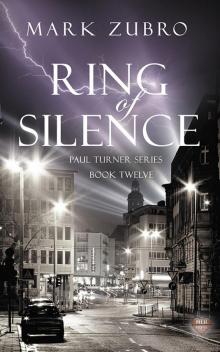 Ring of Silence
Ring of Silence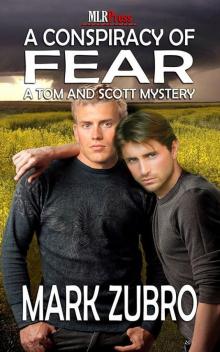 A Conspiracy of Fear
A Conspiracy of Fear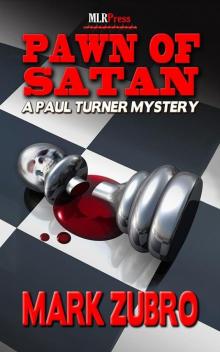 Pawn of Satan
Pawn of Satan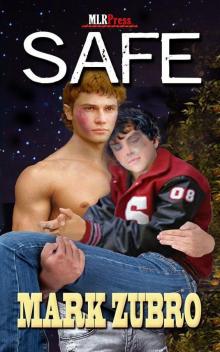 Safe
Safe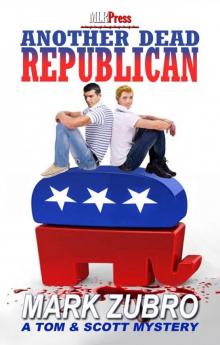 Another Dead Republican
Another Dead Republican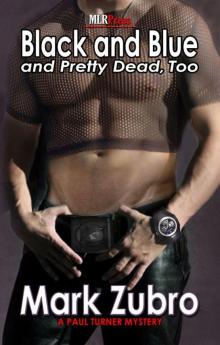 Black and Blue and Pretty Dead, Too
Black and Blue and Pretty Dead, Too Alien Home
Alien Home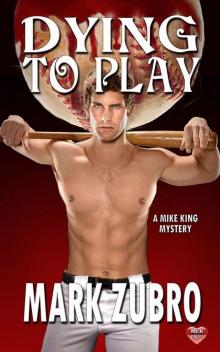 Dying to Play
Dying to Play Alien Victory
Alien Victory